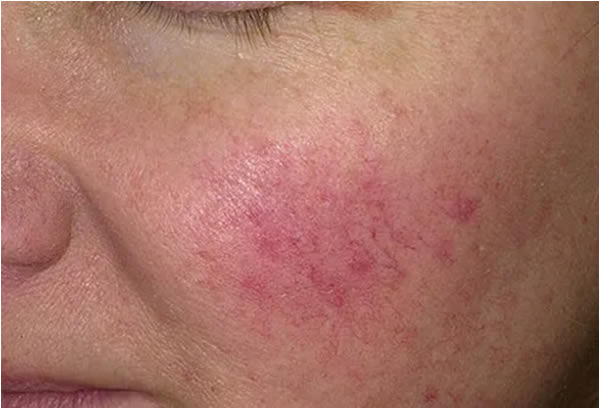
Rosacea Causes And Ways To Manage Symptoms
What is rosacea?
Rosacea is a chronic skin condition that affects millions of people worldwide and is characterised by redness, flushing, visible blood vessels, and sometimes acne-like bumps, otherwise known as Acne Rosacea.
Anyone can develop Rosacea but it is believed to be exacerbated due to a combination of hereditary and environmental factors. Women tend to develop Rosacea more often than men, and the likelihood of developing this chronic skin condition seems to increase if 30 years or older, fair-skinned and have blonde hair and blue eyes. Stressful situations can often trigger your first flair-up and menopause is also considered to heighten symptoms due to hormonal fluctuations.
What triggers rosacea?
Research has found that the following factors can trigger Rosacea symptoms;
- Hot beverages – heat from hot beverages can cause Rosacea to flare
- Spicy foods – can cause flushing and aggravate rosacea symptoms.
- Sun exposure – UVA/B exposure can trigger rosacea flare-ups, making it essential to use sunscreen and protective clothing.
- Stress – Stress plays havoc on all skin types, and we know it can present itself in many ways throughout the whole body. Unsurprisingly, stress can therefore exacerbate rosacea symptoms, emphasising the importance of stress management techniques such as massage therapy, exercise, meditation and yoga.
- Optimal skincare products – When skin health is compromised, the effect of an inadequate skincare regime can be extremely detrimental. Abrasive cleansers, exfoliants, and many skincare ingredients can irritate sensitive skin, which in turn will aggravate or indeed cause Rosacea symptoms. Here at and so beautiful… I have an array of suitable products which not only support the delicacy of a Rosacea skin type but also help strengthen the vascular structure of the skin, helping to repair its barrier and balance the PH enabling it to gain the strength and resilience it needs.
- Alcohol consumption - Alcohol, and in particular red wine, can dilate blood vessels and trigger flushing in individuals with rosacea. So, like anything we enjoy in life, we should do this in moderation.
- Poor diet - can affect your gut microbiome, known as your ‘second brain’ and is heavily linked to skin health. Prioritising consumption of pre and probiotic foods, along with taking probiotic supplements can massively help optimise skin health and overall well-being, regardless of skin type/condition. However, due to the sensitivity and inflammatory response in Rosacea skin, poor diet can trigger symptoms significantly.
Understanding the triggers and implementing effective management strategies, such as a healthy diet, focusing on gut health, introducing a gentle, but effective skincare regime, and adopting techniques to reduce stress, can significantly alleviate symptoms and in turn, improve quality of life due to the impact rosacea can have on your well-being.
in summary:
Whilst Rosacea can be a challenging skin condition to live with, especially for women, by understanding the triggers and implementing effective management strategies, it can be successfully managed and symptoms significantly improved. Prioritising your well-being and stress levels, alongside an optimal skincare regime, whilst maintaining gut health and a suitable diet can all contribute to minimising flare-ups and achieving healthier, calmer skin. If you're struggling with Rosacea, and would like some more bespoke help and advice, please feel free to book Skin Analysis and Consultation with me to get you started on your journey with me to a happy and healthy skin!


